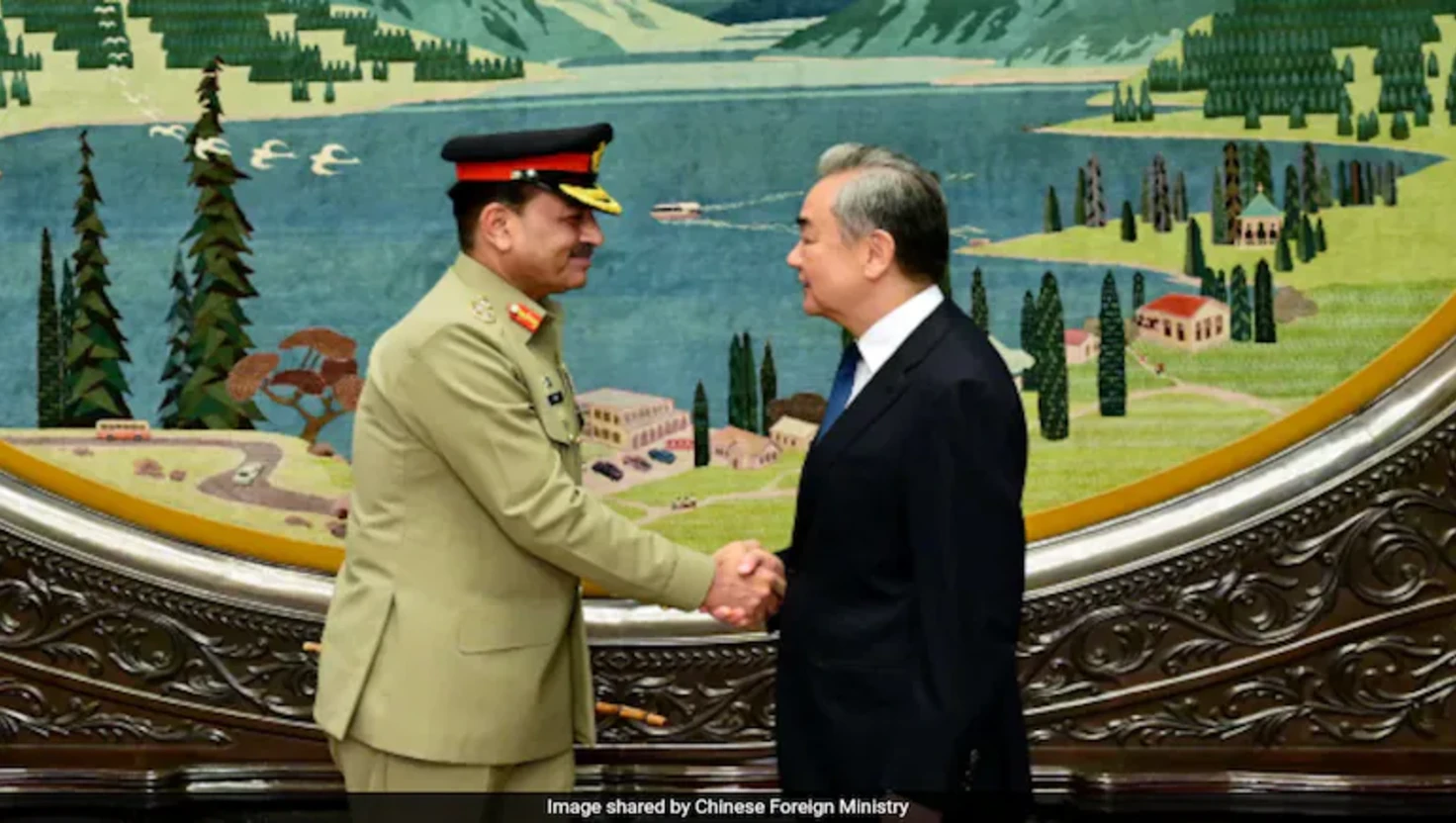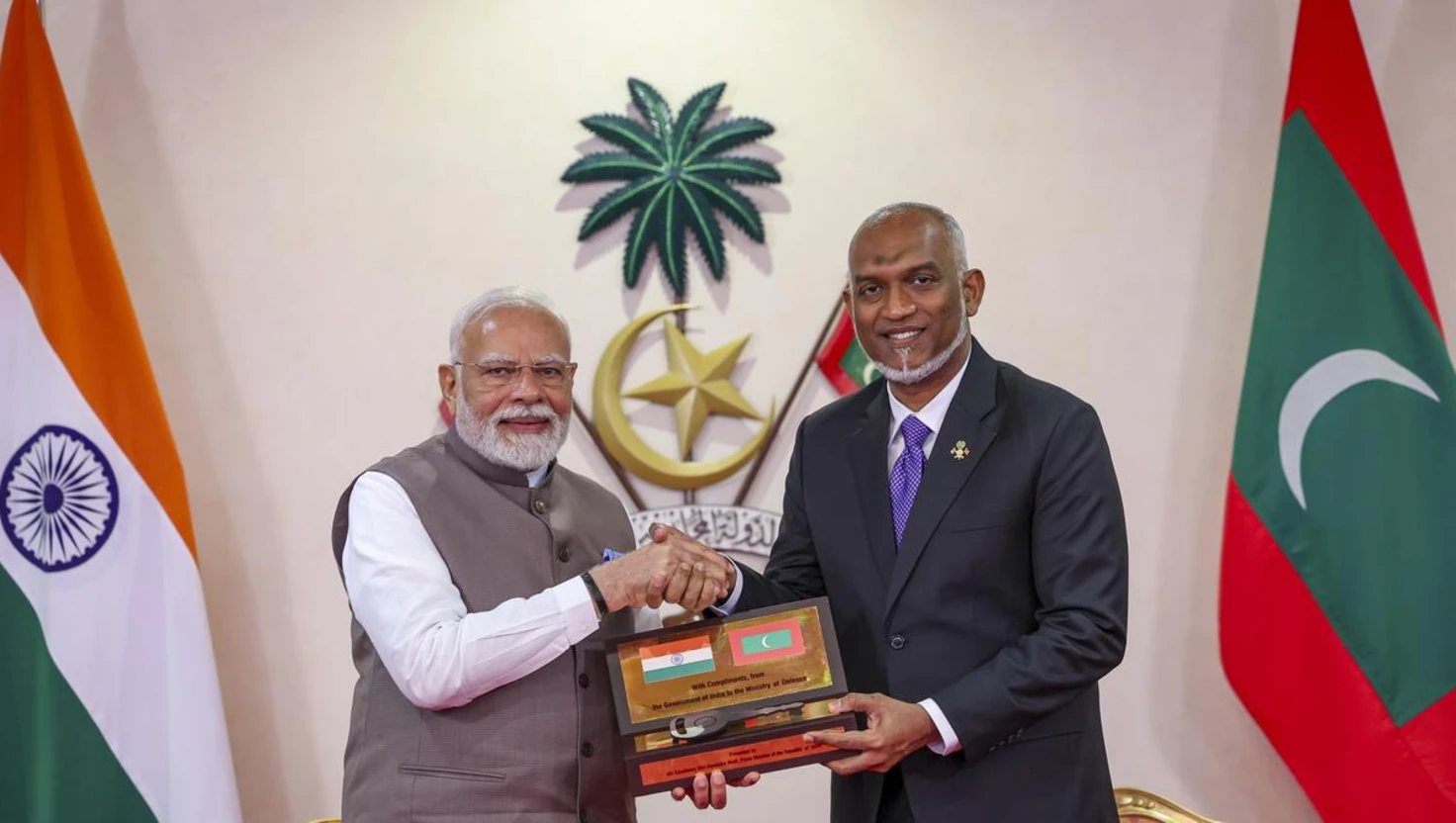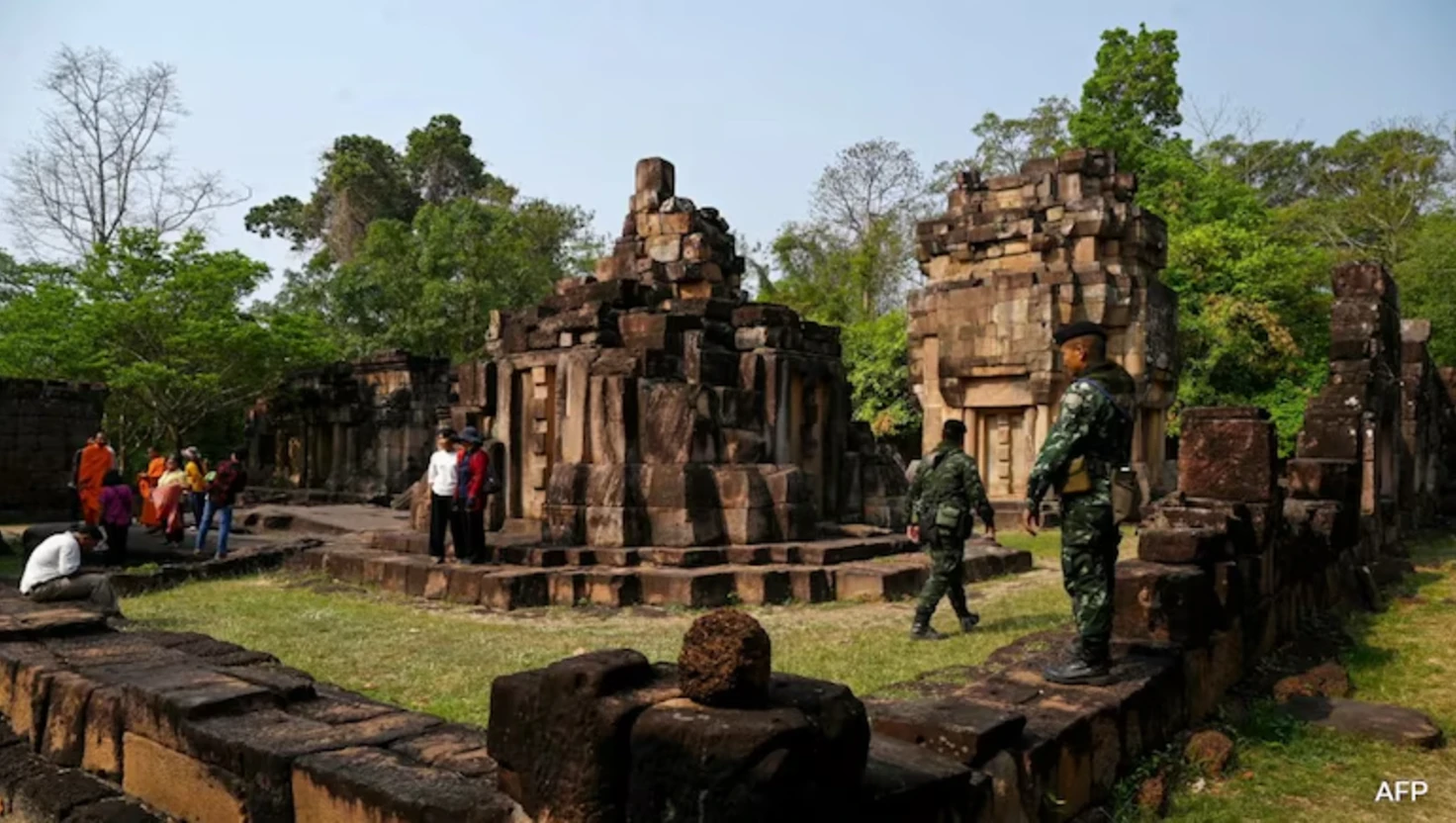Asim Munir Addresses Chinese Safety Concerns During Beijing Visit

Asim Munir Addresses Chinese Safety Concerns During Beijing Visit
Pakistan's Army Chief assures China of safety for its nationals amidst rising security concerns during a key diplomatic visit.
During a recent visit to Beijing, General Asim Munir, Chief of the Army Staff of Pakistan, faced significant scrutiny regarding the safety of Chinese nationals in Pakistan. China's Foreign Minister, Wang Yi, brought up concerns about the security of Chinese personnel, projects, and institutions in the region, highlighting the deteriorating safety situation faced by Chinese citizens in Pakistan.
In recent years, there have been multiple incidents of violence targeting Chinese individuals. For instance, in October 2024, a suicide car bomb attack near Karachi airport resulted in the deaths of two Chinese engineers. Earlier that same year, five Chinese workers were killed in a suicide bombing in northern Pakistan. These incidents have raised alarms about the safety of Chinese investments in the country, particularly as the China-Pakistan Economic Corridor seeks to expand infrastructure and development projects.
During this high-profile meeting, Munir emphasised the long-standing relationship between Islamabad and Beijing, stating that their partnership is "solid as a rock." He reassured Minister Yi that the Pakistani military would take all necessary actions to ensure the safety of Chinese nationals in Pakistan. This assertion came amidst a backdrop of Pakistan's efforts to enhance military diplomacy to fortify regional partnerships, particularly following hostilities with India earlier in May 2024.
Munir expressed his gratitude for China's ongoing support of Pakistan's socio-economic development and indicated the military's commitment to increasing counter-terrorism cooperation with China. This emphasis on security partnerships aligns with both nations' broader goals for stability and prosperity in the region.
In response, Foreign Minister Wang Yi congratulated General Munir on his recent promotion to the rank of Field Marshal. Yi reiterated China's steadfast support for Pakistan, characterising it as an "iron-clad friend and all-weather strategic partner." The Chinese official reaffirmed Beijing's dedication to strengthening ties with Islamabad, ensuring mutual benefits for both countries and contributing to regional peace and stability.
A statement from the Chinese Foreign Ministry illuminated the long-standing cooperative relations, stating, "The two sides have always firmly supported each other on issues involving each other's core interests, and have stood together thick and thin in the face of various challenges."
The evolving relationship between China and Pakistan has significant implications for the regional dynamics, particularly concerning India’s security and economic interests. There have been reports indicating that China has provided military assistance to Pakistan, including during recent military operations, heightening concerns in New Delhi. The Indian Army has indicated that Chinese intelligence support was utilized by Pakistan during Operation Sindoor.
As General Munir's visit underscores, both nations continue to cultivate their partnership, amidst rising regional tensions, with an eye towards economic growth and stability, while addressing pressing security concerns that threaten foreign investments.
In conclusion, the meeting between Asim Munir and Wang Yi represents not only a commitment to safeguarding Chinese presence in Pakistan but also a strategic alignment that could alter the geopolitical landscape in South Asia, particularly in relation to India's defence posture and regional alliances.
In recent years, there have been multiple incidents of violence targeting Chinese individuals. For instance, in October 2024, a suicide car bomb attack near Karachi airport resulted in the deaths of two Chinese engineers. Earlier that same year, five Chinese workers were killed in a suicide bombing in northern Pakistan. These incidents have raised alarms about the safety of Chinese investments in the country, particularly as the China-Pakistan Economic Corridor seeks to expand infrastructure and development projects.
During this high-profile meeting, Munir emphasised the long-standing relationship between Islamabad and Beijing, stating that their partnership is "solid as a rock." He reassured Minister Yi that the Pakistani military would take all necessary actions to ensure the safety of Chinese nationals in Pakistan. This assertion came amidst a backdrop of Pakistan's efforts to enhance military diplomacy to fortify regional partnerships, particularly following hostilities with India earlier in May 2024.
Munir expressed his gratitude for China's ongoing support of Pakistan's socio-economic development and indicated the military's commitment to increasing counter-terrorism cooperation with China. This emphasis on security partnerships aligns with both nations' broader goals for stability and prosperity in the region.
In response, Foreign Minister Wang Yi congratulated General Munir on his recent promotion to the rank of Field Marshal. Yi reiterated China's steadfast support for Pakistan, characterising it as an "iron-clad friend and all-weather strategic partner." The Chinese official reaffirmed Beijing's dedication to strengthening ties with Islamabad, ensuring mutual benefits for both countries and contributing to regional peace and stability.
A statement from the Chinese Foreign Ministry illuminated the long-standing cooperative relations, stating, "The two sides have always firmly supported each other on issues involving each other's core interests, and have stood together thick and thin in the face of various challenges."
The evolving relationship between China and Pakistan has significant implications for the regional dynamics, particularly concerning India’s security and economic interests. There have been reports indicating that China has provided military assistance to Pakistan, including during recent military operations, heightening concerns in New Delhi. The Indian Army has indicated that Chinese intelligence support was utilized by Pakistan during Operation Sindoor.
As General Munir's visit underscores, both nations continue to cultivate their partnership, amidst rising regional tensions, with an eye towards economic growth and stability, while addressing pressing security concerns that threaten foreign investments.
In conclusion, the meeting between Asim Munir and Wang Yi represents not only a commitment to safeguarding Chinese presence in Pakistan but also a strategic alignment that could alter the geopolitical landscape in South Asia, particularly in relation to India's defence posture and regional alliances.

India Grants ₹4,850 Crore Credit to Maldives Amid Strengthened Ties
Indian Prime Minister Narendra Modi announces substantial assistance to Maldives during a state visit, aiming to bolster economic cooperation.
| 2025-07-26

Narendra Modi Surpasses Indira Gandhi in Unbroken Tenure
Indian Prime Minister Narendra Modi becomes the second longest-serving PM, surpassing Indira Gandhi's record of consecutive days in office.
| 2025-07-26

Tensions Erupt Between Thailand and Cambodia Over Hindu Temples
Recent clashes near ancient temples mark a significant escalation in the Thailand-Cambodia border conflict, with historical roots dating back decades.
| 2025-07-26

India, UK Sign Landmark Free Trade Agreement
During Indian Prime Minister Modi's UK visit, a historic free trade deal was signed, promising significant economic benefits and enhanced market access.
| 2025-07-25

Study Reveals 7,000 Daily Steps May Lower Health Risks
Research suggests that walking 7,000 steps daily can enhance brain health and mitigate disease risks, challenging the 10,000-step guideline.
| 2025-07-25




